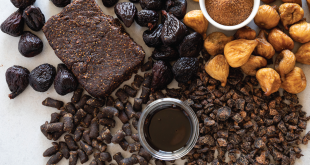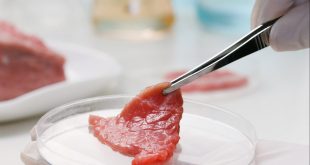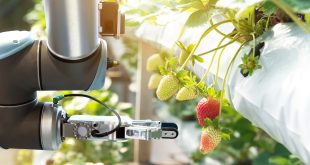THE INTERNATIONAL FOOD POLICY RESEARCH INSTITUTE (IFPRI) SAYS AGRICULTURAL TECHNOLOGIES COULD INCREASE GLOBAL CROP YIELDS AS MUCH AS 67 PER CENT AND CUT FOOD PRICES IN HALF BY 2050.
 Security in a World of Natural Resource Scarcity: The Role of Agricultural Technologies, a new report by the IFPRI pinpoints the agricultural technologies and practices that can significantly reduce food prices and food insecurity in developing nations. The study profiled 11 agricultural innovations: crop protection, drip irrigation, drought tolerance, heat tolerance, integrated soil fertility management, no-till farming, nutrient use efficiency, organic agriculture, precision agriculture, sprinkler irrigation, and water harvesting.
Security in a World of Natural Resource Scarcity: The Role of Agricultural Technologies, a new report by the IFPRI pinpoints the agricultural technologies and practices that can significantly reduce food prices and food insecurity in developing nations. The study profiled 11 agricultural innovations: crop protection, drip irrigation, drought tolerance, heat tolerance, integrated soil fertility management, no-till farming, nutrient use efficiency, organic agriculture, precision agriculture, sprinkler irrigation, and water harvesting.
“The reality is that no single agricultural technology or farming practice will provide sufficient food for the world in 2050,” says Mark Rosegrant, lead author of the report and director of IFPRI’s Environment and Production Technology Division.
If farmers were to stack agricultural technologies in order of crop production schedules, the combination of agricultural technologies and practices could reduce food prices by up to 49 per cent for maize, up to 43 per cent for rice, and 45 per cent for wheat due to increased crop productivity.
The anticipated negative effects of climate change on agricultural productivity as well as projected population growth by 2050, suggest that food insecurity and food prices will increase.
Based on current projections, stacked technologies could reduce food insecurity by as much as 36 per cent. Making this a reality, however, depends on farmers gaining access to these technologies and learning how to use them. Adopting the technologies examined in the study would increase food production and improve food security under climate change.
 Canadian Food Business
Canadian Food Business




